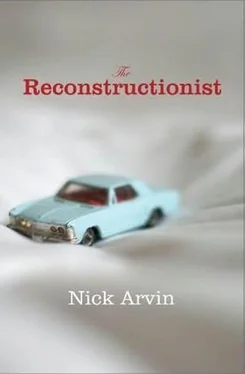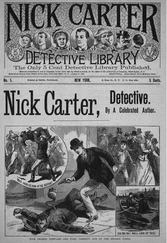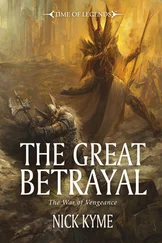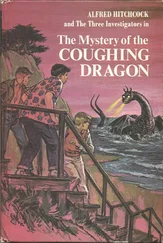He also found hidden away – and, it seemed, forgotten – a couple of Heather’s art projects. There were a few disposable coffee cups that rattled when he lifted them: each contained a paper diorama to be viewed through the hole in the lid. Octopuses hanging from tiny strings. A skyline of gold foil buildings. A dinosaur emerging from an outhouse. And he discovered a toy airplane, more than two feet long, which had been covered with delicately placed feathers. It looked like an airplane-shaped chicken, with a chicken’s incompetence for real flight, and he adored it. Fearing Heather might throw them away, he left them where he had found them.
He discovered evidence of a house that had been divided for some time – many of Boggs’s clothes were in the guest room. Dirty plates and glasses were stacked around the desk Boggs kept in the basement.
On the fourth day Ellis decided to take out this desk and the file cabinet beside it. He approached the task with some anxiety – he knew Boggs had kept copies of a number of work files in the drawers, and Ellis had a fear of those files, as if by a monstrous magnetism they might draw him into old nightmares. But when he opened the drawers, he found them empty. Heavy and bulky, the desk and the drawers could be pushed over the floor, but he saw that he could not move them up the stairs by himself. He retrieved a hammer and a pry bar from Boggs’s tools, began yanking out the drawers, and found taped to the underside of one a broken, weathered plastic nameplate that said airlane .
He stood turning it in his hands for a long while, confounded. Eventually he carried it to the minivan and put it into the glovebox. He sat in the passenger seat, wondering, until, with a bellowing noise, a neighbour began mowing his lawn. Ellis locked the glovebox, retreated inside and took apart the desk with hammer blows.
Still time moved by like a slow wind, a large and invisible force, present in the nodding of grasses and the shaking of leaves, easily forgotten. He watched Heather and thought a great deal about the airlane nameplate, trying to derive its significance. You ever talk to Heather about your brother’s accident? Boggs had asked.
‘I feel ashamed all the time,’ she said one evening. ‘As if I’d been coated with something, plasticky or rubbery, shiny. Mint green. It’s strange when no one else seems to notice.’ She looked at her hand. ‘Do you still see my scars?’
‘I haven’t noticed them in a long time,’ Ellis said. This seemed the only thing to say, even if it was not entirely true.
‘I think I’d actually forgotten them for a while. I didn’t think I ever would, but then I did. I know because now I see them again.’
He watched for her to throw things or claw herself, but she didn’t move. He knew something undefined and emotional had shifted between them, and he tried to think through it carefully. But it was like trying to think his way to California.
In their long stretches of silence, he watched her take art books off the shelf – Rothko, Still, Motherwell, Johns – and turn through the images, her expression unaffected by whatever she saw. Sometimes she spent hours with the TV on and a page before her, doodling dense tangles of lines, craggy, elaborate constructions: leaves, machineries, mazes, branches, flowers, tangles of wire, heaps of rope, blending into one another from edge to edge of the page.
The shattering heat of the shower poured on him until the hot-water tank had been exhausted. He set himself into jeans and a T-shirt, socks and shoes, and with these tasks completed sat on the bending edge of the bed. Heather would not be back until five or six. Sunlight cut between the leaves outside and set a shifting pattern of shadow on the wall. He watched it move until the last of it seeped off the wall onto the floor. Then he went into the bathroom to pee and then the kitchen and ate a couple of slices of plain bread. At the bottom of the sink lay loose puddles of water, evaporating. All around, dust settled. He swept the kitchen floor – as he had done the day before, and the day before that – and gathered a few crumbs into a dustpan and threw them away. In the living room he turned through a magazine – not reading, but watching how the glare of the light moved over the gloss of the pages as he manipulated them.
At noon he poured a can of soup into a bowl, microwaved it, ate, washed the bowl and spoon by hand, dried them, set them back in the cupboard. He sat with the jobs section of the classifieds and read through it but marked nothing – he was either under-qualified or overqualified. He went to the computer that Heather kept in the spare bedroom and opened a new document to begin working out a résumé. He’d put his name at the top of the page before he realised that the mouse pad beside the keyboard, showing a brown mouse with a red ribbon around his neck, was the same one that he had given to her in the museum years before. It disoriented him badly.
Finally he aimed his gaze at the screen and tried to consider whether he should provide as his address this house or his apartment, until his eyes felt dried by the steady glow of the screen, and he turned it off. Darkened, the dust captured on its surface could be seen. He attempted to examine it, mote by mote. He shifted his fingers. He seemed to feel something, but was it large or small, was it guilt or grief? Did these two actually feel different from each other, or were they only two labels applied to the same thing depending on context?
He sat on the floor, trying to detect the impression of the bones of his spine one atop another, the press of his lungs into his ribs, the taste of the top of his mouth against his tongue, the flickering contact of his eyelids when he blinked, the fall of his hair against his scalp. If he concentrated hard enough perhaps he could even sense the hair growing from the follicles, the smell of himself lifting from himself, the noise of molecules of nitrogen and oxygen bouncing off his eardrums, the cells of his body slowly creating and destroying themselves.
Certain thoughts worked through his mind on long, spiral paths. Christopher became James became Boggs, and other accidents that he had worked on pressed into his attention, photograph images, the scents and winds and landscapes of accident scenes, a family scattered dead over the road and the crushed tow-truck driver and the little girl killed by a family of geese and the man who backed away from the burning van while screams still sounded inside – which was exactly what Christopher had failed to do. It shocked Ellis to realise this. How strange he had never made the connection.
He did not know what to do with the questions that the airlane nameplate forced him toward. Apparently Boggs had gone to see Christopher’s car. Why had he done that? Had he done a reconstruction of Christopher’s accident? Why? What had he found? Ellis didn’t want to look into any accident, he didn’t want to reconstruct anything, and he absolutely did not want to consider or reconstruct Christopher’s accident. But it seemed the only way to discover what Boggs had known. Did it matter what Boggs had known? He wasn’t sure. But the question presented itself again and again, summoning itself up as if by the same mechanism that the image of James Dell on the hood still made itself known. He could only guess that it related to Boggs’s conversation with Heather beside the golf course.
When Heather arrived home she moved around to redistribute the same items she had collected that morning – cellphone, keys, purse – then went into the bedroom. He heard the lisp of her skirt’s collapse on the floor and a drawer opening as she pulled out jeans.
She sat beside him. She asked how his day had been. He spoke of what he had seen in the paper and online, of thinking about his résumé. She nodded. ‘What happened to Boggs’s files in the basement?’ he asked.
Читать дальше












